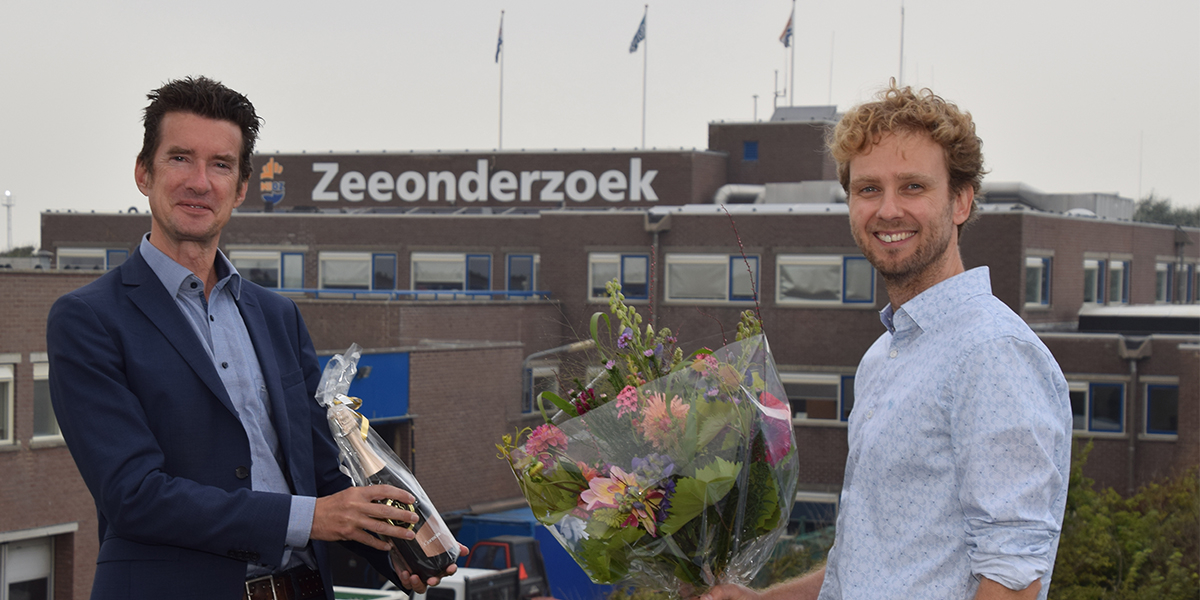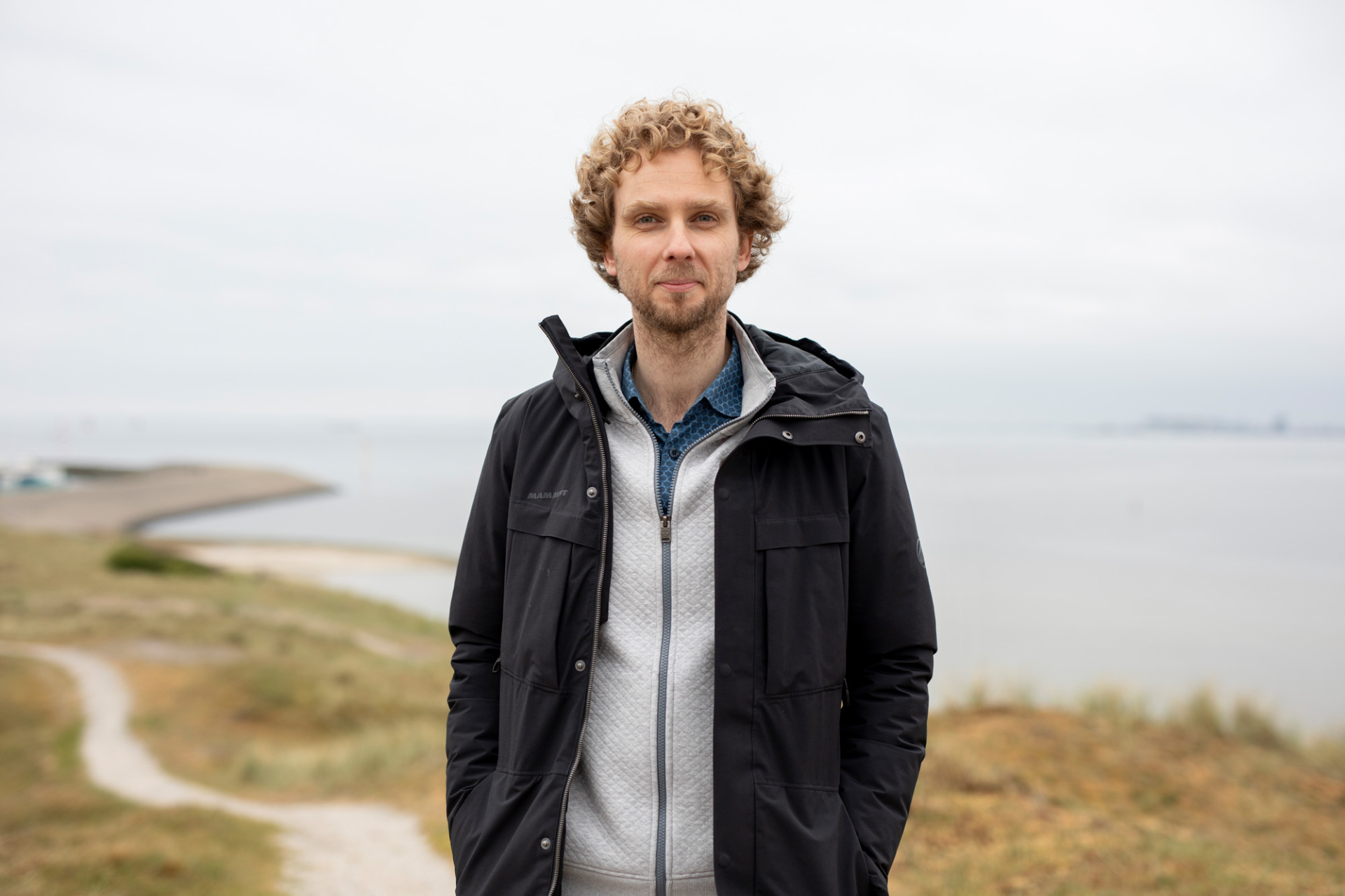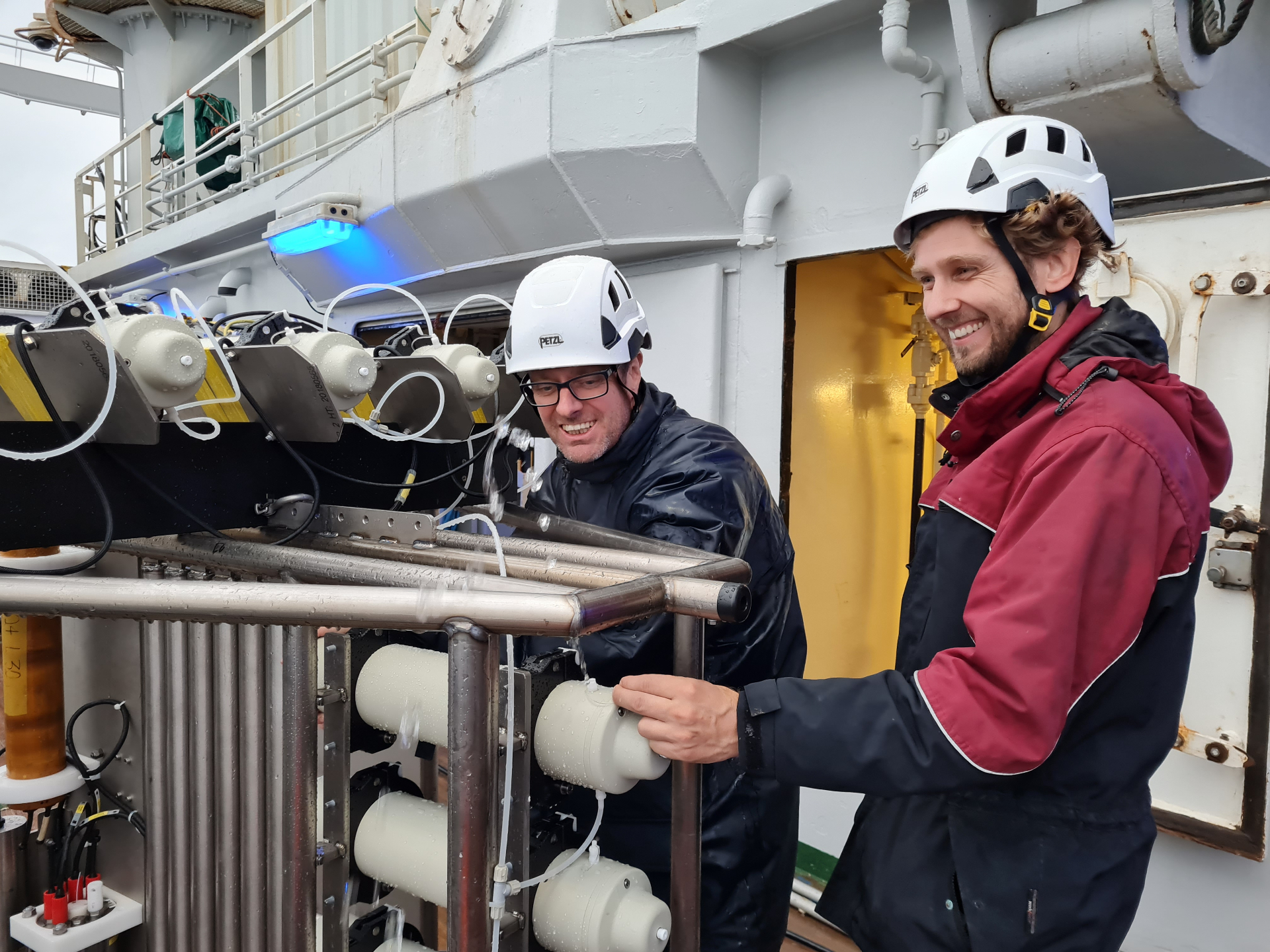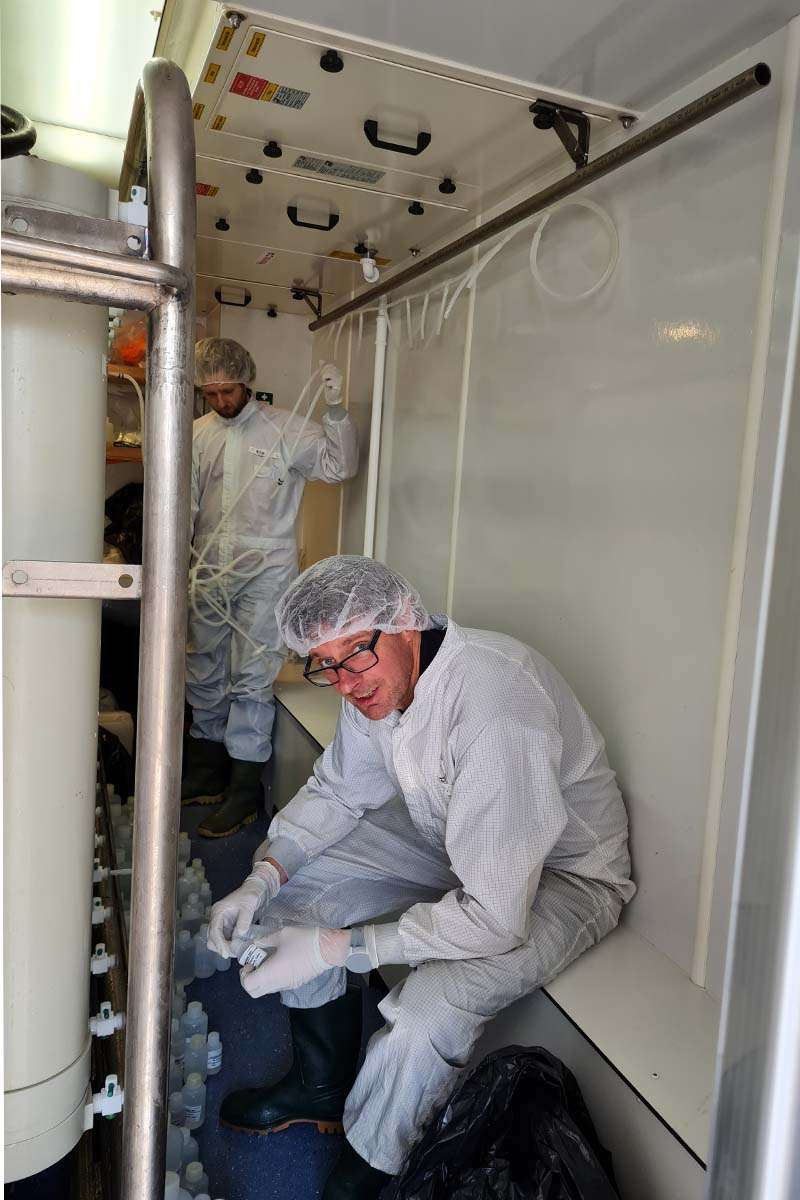Rob Middag appointed honorary professor Marine Trace Metal Biogeochemistry

Although not visible to the naked eye, dissolved metals in the ocean are of crucial importance to us all. Often only regarded as toxins, metals are actually also required as nutrients for the health and growth of all organisms. Metals form the reactive centres of enzymes, enabling these to perform biochemical functions, such as oxygen-transport or photosynthesis. In the ocean, concentrations of bio-essential metals are vanishingly low, where for example dissolved iron concentrations are on the order of 1 paperclip dissolved in 15 Olympic sized swimming pools. A shortage of iron in the surface ocean can limit the growth of unicellular algae, known as phytoplankton, that form the base of the marine food web. As such, the availability of iron and other bio-essential metals is important for marine ecosystems, but also for the amount of CO2 that is absorbed by the ocean as phytoplankton convert CO2 into biomass. Thus far, roughly 1/3 of anthropogenic CO2 emissions have been absorbed by the ocean, buffering the planet against climate change where marine phytoplankton, and thus bio-essential metals, play an important role.

"I’m honoured to accept a position as honorary professor in Marine Trace Metal Biogeochemistry at the University of Groningen in the Centre for Isotope Research (CIO) Oceans group where I will work with colleagues that study phytoplankton, the carbon cycle and the modelling of their interaction."says Middag. "I will add focus on the important role of marine trace metals and look forward to intensify this great collaboration and dive further into the elusive mysteries of the ocean. Moreover, I’m really glad to be able to expand my role in educating the next generation of marine scientists and illustrate both the beauty as well as the complexity of the biogeochemical cycles that keep our planet in balance and habitable."

